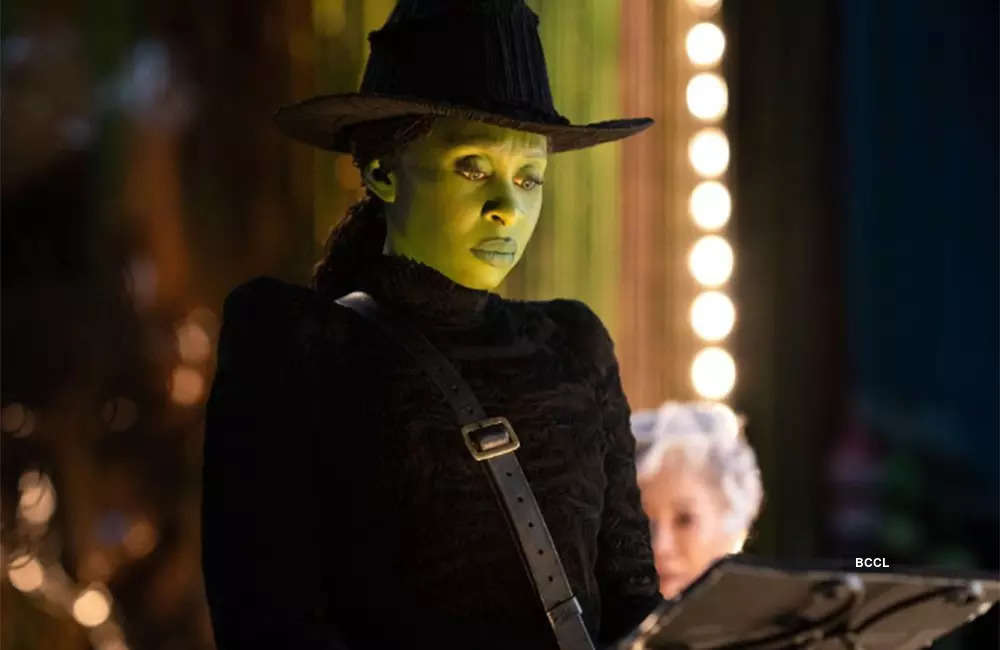Review: ‘Wicked: Part One’ brings the beloved Broadway musical to the silver screen. Despite its strong source material and a dazzling production, this adaptation stumbles in its attempt to balance complexity with coherence.
Director Jon M. Chu, alongside screenwriters Winnie Holzman and Dana Fox, ambitiously aims to expand the world of Wicked, but the plot becomes unnecessarily cluttered with too many subplots that go nowhere. The film opens with an intriguing bang, showcasing the birth of Elphaba, and immediately hooks the audience with its dramatic flair. However, this momentum quickly dissipates as the story begins to meander, weighed down by too many half-baked storylines.
At the heart of the film, the story of Elphaba and Glinda shines, thanks to standout performances by Cynthia Erivo and Ariana Grande respectively. Erivo portrays Elphaba with depth and dignity, capturing her vulnerability and resilience. Grande, stepping out of her pop star persona, plays the pompous yet endearing Glinda with surprising charm and precision. Their chemistry lends the narrative its most compelling moments. However, the film’s insistence on introducing an ensemble of characters with incomplete stories derails the focus.
For instance, Fiyero Tigelaar (Jonathan Bailey) makes an impactful entrance as the dashing prince, but his track soon devolves into a muddled distraction. Similarly, Elphaba’s wheelchair-bound sister Nessarose (Marissa Bode) and the plight of the speaking animals—on the brink of being silenced and caged—offer moments of intrigue but fail to develop into meaningful arcs. Even Madame Morrible (Michelle Yeoh), portrayed with unmatched finesse, is underutilised, leaving viewers yearning for more of her presence.
Visually, the film is a spectacle. Alice Brooks’ cinematography masterfully captures the enchanting landscapes of Shiz University and the fantastical world of Oz, immersing the audience in a vibrant, magical realm. The elaborate costumes, detailed set designs, and seamless special effects create a feast for the eyes. Unfortunately, this visual grandeur is not matched by the screenplay, which feels bloated and verbose, losing the narrative’s urgency and emotional punch.
As a musical, ‘Wicked’ rests heavily on its songs, but John Powell and Stephen Schwartz’s compositions fail to leave a lasting impression. Despite being integral to the storytelling, the songs lack the memorable quality of their Broadway counterparts. Instead of elevating the narrative, they feel repetitive and uninspired, making the film’s long runtime feel even longer.
In the end, ‘Wicked: Part One’ is a mixed bag. While it succeeds in transporting audiences to a magical world with its stunning visuals and strong lead performances, its convoluted plot and forgettable music weigh it down. For younger viewers, the enchanting aesthetics may hold some appeal, but the sluggish pace and overstuffed narrative risk losing their attention. Adults, meanwhile, might find the endless loop of songs and unresolved plot lines trying their patience—especially with the dreaded “to be continued” conclusion.
For all its glittering promise, this much-anticipated adaptation fails to cast the spell it so desperately seeks. ‘Wicked’ dazzles a bit but ultimately lacks the heart and magic to soar.








